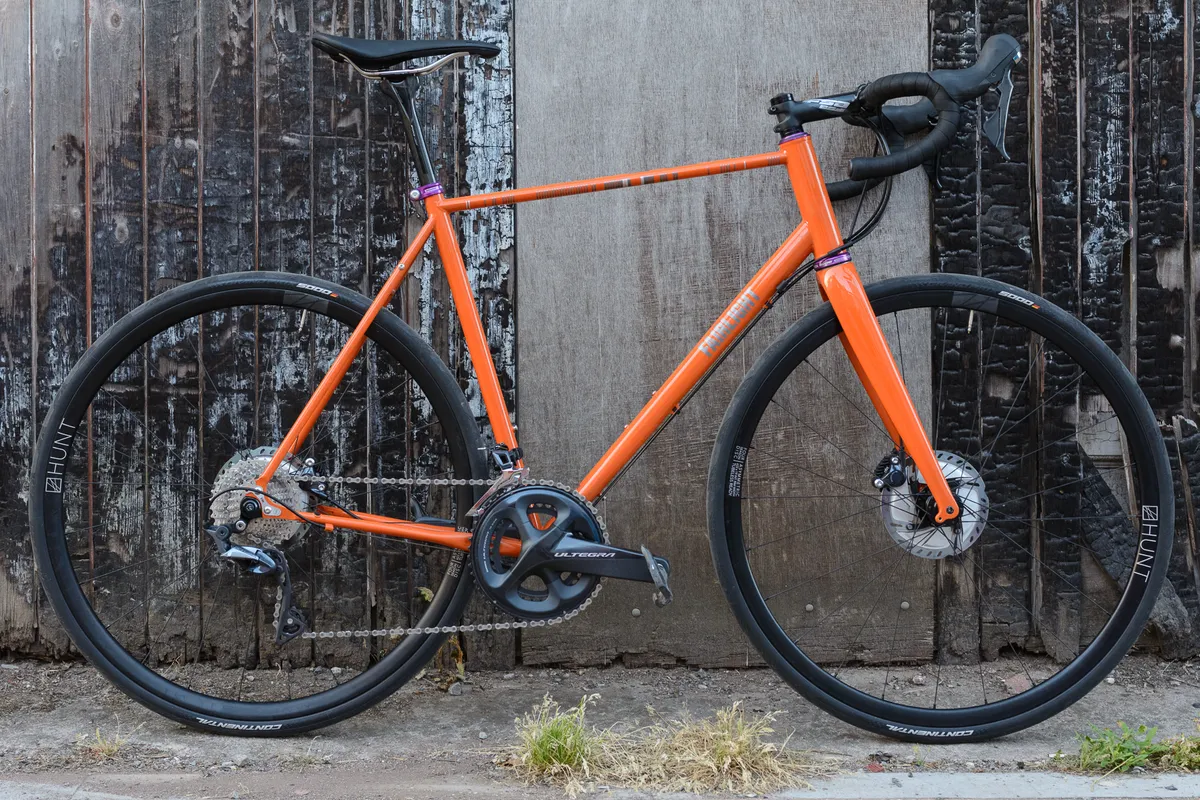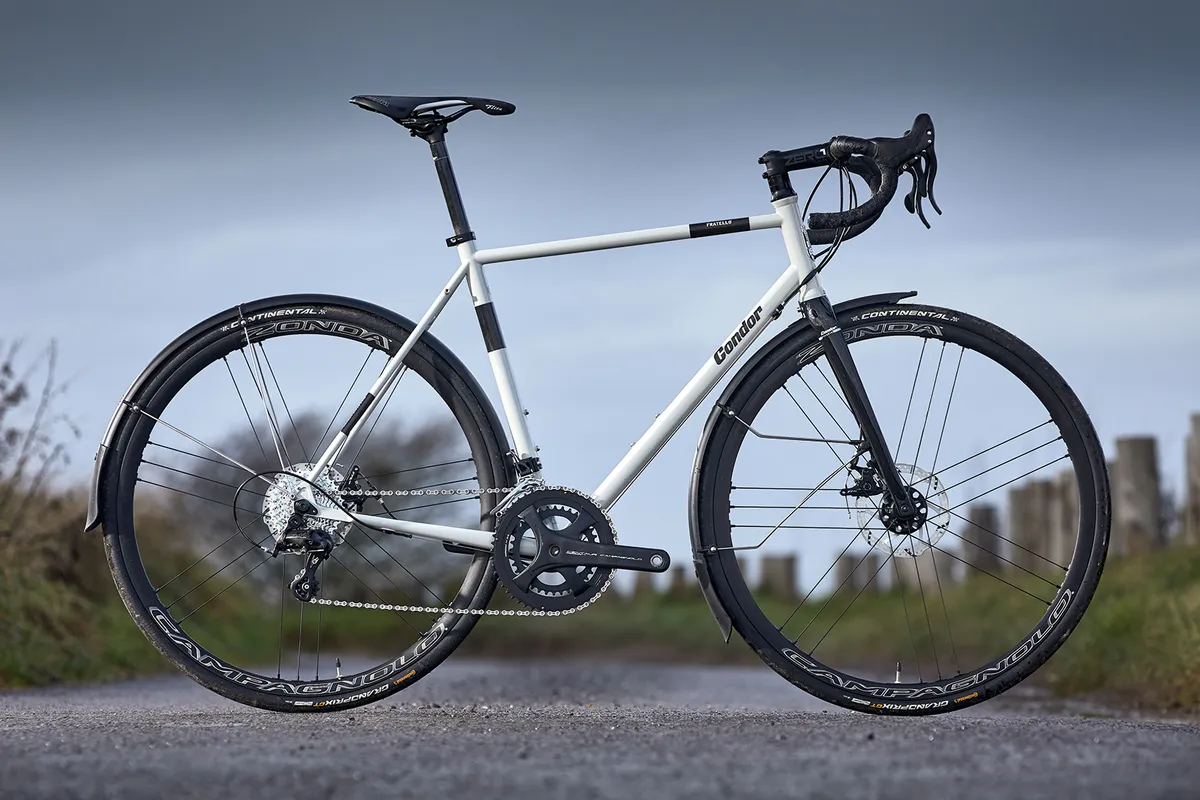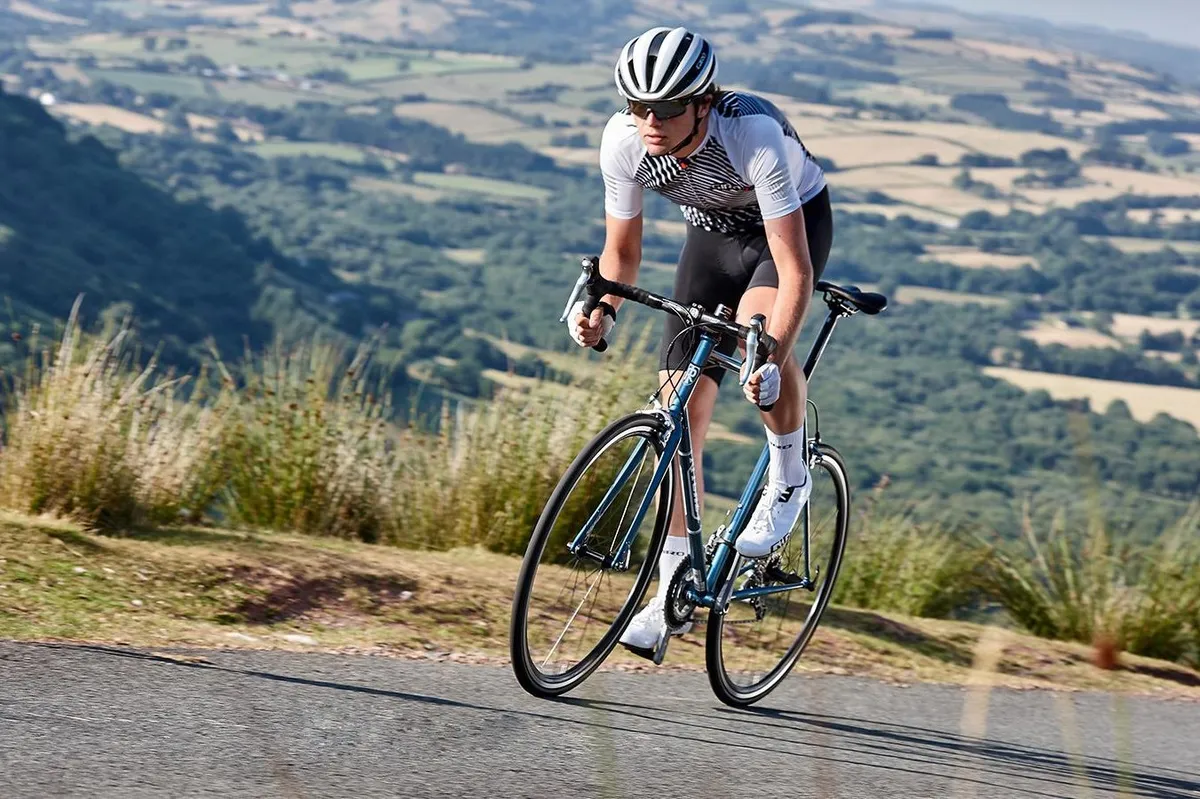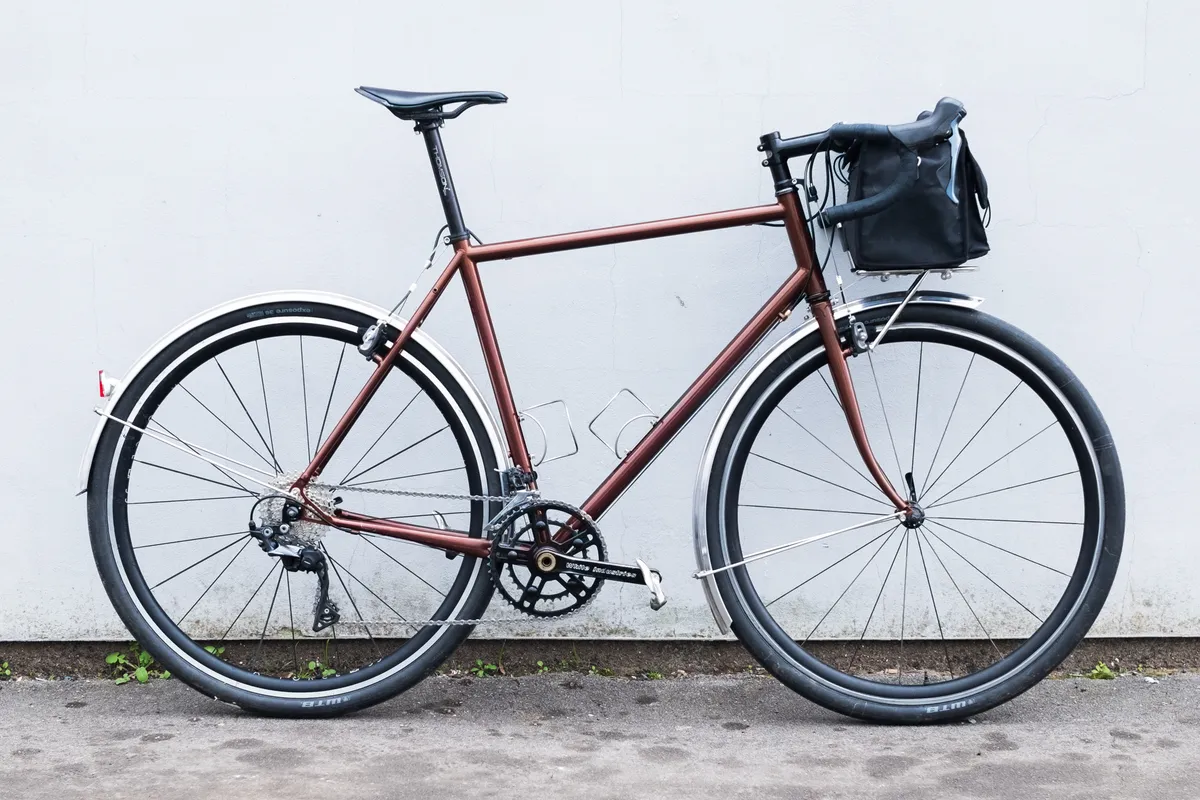Classic looks, a sublime ride quality and impressive longevity are among the many reasons why you may want to buy a steel road bike.
There’s also no denying that these days, a skinny steel road-going bike stands out among a crowd of chunky-tubed aluminium and carbon bikes. For some, this will be rationale enough.
Whatever motive has drawn you to the idea of adopting the chromo life, these are the best steel road bikes as ridden, tested and rated by BikeRadar.
Otherwise, check out our full archive of road bike reviews, or head to our buyer's guide to the best touring bikes for more steel machines.
Related reading
Editor’s note: We last updated this list on 28 May 2025, removing discontinued bikes, adding the Surly Midnight Special and Spa Cycles Audax, and refreshing the buyer’s guide.
The best steel road bikes, as rated and reviewed by BikeRadar
Fairlight Strael 3.0

- £2,899 as tested
- Pros: Superb comfort; highly adaptable frameset
- Cons: Very little
The third generation of the Fairlight Strael delivers all-day comfort, excellent adaptability, customisation, and value for money.
The Strael 3.0 has an updated rear end that can take 36mm tyres for extra comfort and endurance riding.
The frame has all manner of braze-ons and ports, including a third bottle mount and internal routing in the front fork for a dynamo light, making the Strael highly adaptable, and configurable to how your needs change over time.
The bike has been superseded by the fourth generation Strael, which we expect is equally likely to delight.
Spa Cycles Audax

- £1,265 as tested
- Pros: Classic looks; smooth and comfortable ride; hand built wheels
- Cons: Welds could be neater; some toe overlap
The Spa Cycles Audax boasts light and lively handling that makes it exciting to ride down the road, while its supple frameset soaks up noise, resulting in a smooth and comfortable ride.
While the lack of disc brakes will be a turn-off for some, the Tektro brakes do a decent enough job of slowing the bike down.
There's no doubting the strength of the welds on the frame, though we have seen neater ones on other bikes.
- Read more: Spa Cycles Audax review
Condor Fratello Disc
SQUIRREL_TEXT_13212522

- £2,500 as tested
- Pros: Great handling
- Cons: Middling mechanical disc brakes
The Fratello sits at the mid-point in Condor's range of steel bikes. It looks superb in the flesh and rides beautifully.
The star is the Italian-made frameset. The tubes are custom-shaped to Condor's specifications and are tripled butted. The ride is lively and smoothes out the rough stuff – exactly what is desired from a steel frame.
The frame has also been updated over the older version of the Fratello, with thru-axles, flat-mount disc brakes and internal routing for Di2. There is also internal routing for a dynamo light in the front fork.
At this price point, we would expect hydraulic disc brakes, but the Fratello came with cable-actuated disc brakes, showing not the best value for money.
SQUIRREL_13212522
Genesis Equilibrium
SQUIRREL_TEXT_13212523

- £1,599 as tested
- Pros: Super-smooth and superbly supple ride
- Also available in disc brake version
The Genesis Equilibrium has clearances for 28mm tyres and will gladly take mudguards front and rear.
While we tested the bike with the rarely-seen silver version of Shimano’s 105 R7000 groupset, that's now been replaced by the standard finish on the current generation bike.
An upgrade from the stock Promax brakes would really take this bike to the next level but, that aside, the Equilibrium is very unlikely to leave you disappointed.
SQUIRREL_13212523
Mason Resolution2

- £4,970 as tested
- Pros: Great for long and fast rides
- Cons: Expensive (as tested) versus the competition
The Resolution2 from Sussex brand Mason is made of a mix of Columbus tubing and designed for all-condition, long-distance riding.
It’s calm, comfortable and predictable, but stiff enough to handle harder efforts without feeling flexy, and at around 9kg (as tested) on the lighter side for steel.
The Resolution3 has superseded the Resolution2. This bike sees a new carbon fork, tweaked geometry for improved handling, and increased tyre clearance.
Ritchey Road Logic

- £1,150 / €1,289 (frameset only) as tested
- Pros: Beautifully finished, classy looking steel frameset
- Cons: No fixtures and fittings to cope with foul weather
The Road Logic has been in Ritchey’s line-up for a long time. It has also evolved over time but has settled into its role as a do-it-all TIG-welded steel road machine.
The frame is beautifully finished with exceptionally neat welds. You'll find clearance for 30mm tyres, while the steel frame is paired with a carbon fork.
We reviewed the bike as a complete build, which was briefly offered by Ritchey in 2018. The Road Logic is once again available frame-only, but our assessments of the ride quality – which were very positive – remain.
Surly Midnight Special

- £2,399 as tested
- Pros: Damped, comfortable ride; good range of sizes; large tyre clearence
- Cons: Not the lightest
The Midnight Special is smooth rolling and steady on the road, eating up miles with confidence, even on gravel terrain.
Large tyre clearance gives the bike all-road credentials, and it could be used as light gravel or adventure bike.
This does come at a weight penalty compared to alloy or carbon bikes, with Surly noticeably heavier in the hills.
- Read more: Surly Midnight Special review
How we test steel road bikes

We test steel road bikes throughout the year and on varying terrain to see how they perform in real-world conditions.
Our team has reviewed hundreds of road bikes over the years and knows how to separate the good from the bad, regardless of the frame material.
Ultimately, our steel road bike reviews are based on the following criteria:
- Handling characteristics: how well the bike handles
- Specification: are the components specced on the bike up to the job?
- Value versus the competition: for the specification and ride experience, are you getting a good deal for your money compared to the market?
- Subjective reflections: we aim to be as objective as possible, but we also recognise that some things will suit some individuals, while others won’t. We try to capture our honest reflections while providing the information you need to make the best buying decision.
Steel road bike buyer’s guide
Frame geometry

The geometry of a road bike is the biggest determinant for how a bike will handle.
Generally speaking, road bikes can be split into two categories: race and endurance.
In brief, race bikes will have a lower, more aggressive riding position matched with steeper head and seat tube angles, a shorter wheelbase and longer reach, resulting in quicker handling.
Endurance bikes prioritise comfort and stability with a longer wheelbase and more mellow handling.
The majority of modern steel road bikes sit in the latter camp (though there are, of course, exceptions). The compliant and comfortable nature of a steel frame also lends itself well to this role.
Versatility

As steel bikes often err towards the endurance side of things, you’ll typically find provision to fit mudguards and racks, as well as generous tyres clearances.
This gives them a level of versatility that isn’t often found on aluminium or carbon bikes.
Tradition and physical constraints also mean that steel road bikes tend to use the most unfussy of standards – threaded bottom brackets, external cables and external headsets make sourcing replacement parts and maintenance a breeze.
Longevity

In the event of a frame failure, steel bikes are far, far easier to repair than other materials such as titanium, carbon or aluminium.
It’s possible to go as far as replacing entire tubes, but that may not be economical in many cases.
However, for small repairs, you may be surprised by how affordable the prices your friendly local frame builder will charge.
Double-butt-what-now?

Manufacturers will often quote the steel that is used to construct its frames.
More expensive tubesets will see increasingly exotic tube shapes used to tune ride quality, ultra-thin-walled tubing that reduces weight and can result in a lively ride, and double- or even triple-butted forming.
Big names in the tubing industry include Reynolds, Tange, Columbus and Dedacciai. It’s also increasingly common to see brands spec their own ‘custom-drawn’ tubing.
The difference in ride quality between bog-standard straight un-butted ‘gas pipe’ tubing and high-end ultra-thin-walled tubing is fairly chasmic. However, everything in the middle range is much of a muchness.
Geometry and tyre choice will have a far greater impact on how a steel road bike rides than tube choice here.
That said, there is no denying that the ride quality of truly skinny steel can be absolutely sublime, with a zingy spring that is quite unlike anything else.

